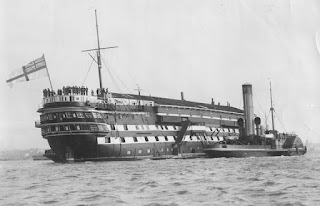Look at what the Royal Navy is dealing with today, and it isn't a stretch to see similar challenges for ourselves. Look and learn - and perhaps we can mitigate the pain.
Have you seen the absolute state of what the Royal Navy is looking at towards the end of this decade? From the summary report of the recent report out of the House of Commons, “We’re going to need a bigger Navy;”
Towards the end of the decade in 2027–28 the Navy will begin transitioning multiple classes of vessel simultaneously. Crucially these plans must be delivered on schedule in order for the Navy to exit the period of risk that budgetary restrictions have placed it in. However, they face many structural and project-specific risks, and the Ministry of Defence’s track record on delivery is far from good.
Whenever we have investigated a failure, we have heard the customary mantra that “lessons have been learned”. Not only do we seriously doubt that this is the case, these projects are too important to the Navy’s credibility and the UK’s security to be treated as a learning opportunity. These projects therefore need greater scrutiny from Parliament and external stakeholders, and this requires the Government to be honest about its intentions and publish shipbuilding delivery plans.
In short, over the next five years or so, at least until the new classes of surface escorts come on stream, the Royal Navy will be asked to do even more with even less. This is a clear risk, which those beyond these shores can calculate just as readily as we can.
It is important to remember that our best naval partner is and will be the Royal Navy. Her problems are our problems, and likewise for her.
Both our nations suffer from the same problem; for decades our military and political elites have mismanaged their nation's requirement for sea power.
We no longer have the luxury of sub-optimalized incompetence of just getting by on not-that-bad.
We have to return to excellence to meet the challenge that China is bringing at sea.
New leaders need to come to the front with a new attitude and a firm understanding of why they are here.
Four years after the 2010 post linked to above, I also made this point;
Solutions? Sure, there are some - but no one is talking about them as they require sharp elbows, flexible intellect, and the ability to not be invited to the right parties - or post retirement gigs of fortune.
Those who have a clear-eyed view of the cornerstone to our nations' freedom is its sea power, we have to fight, argue, and make enemies amongst the rent seekers, bureaucrats, and the permanent natsec nomenklatura who got us here - starting with the land component fetishists.
H/t SW.










No comments:
Post a Comment